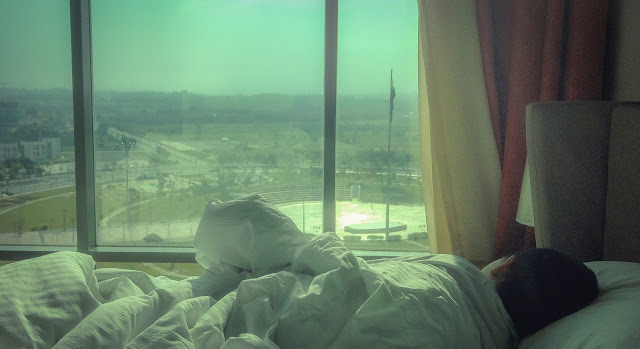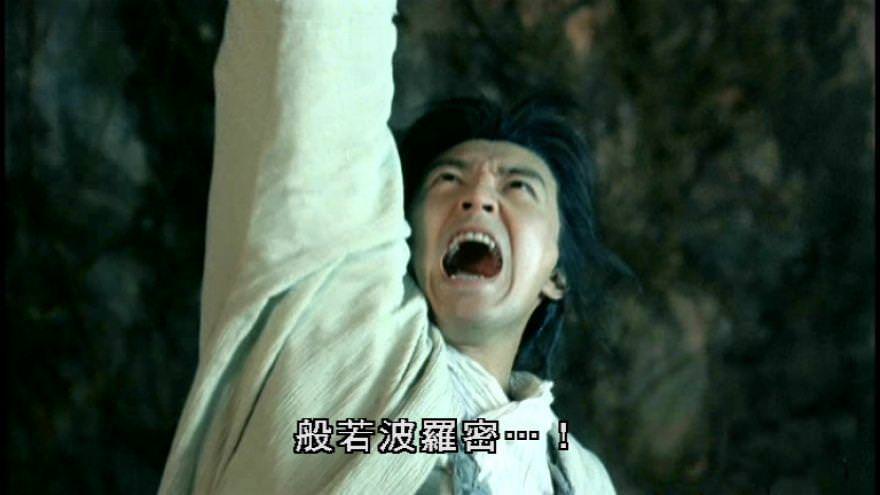But Tuan Douglas said the market square is mine to keep (1883)
From Yap Tek Loy Captain China
To the Tuan Besar
4th Moon 5th day
11th May 1883
After Compliments
Your Petitioner Yap Tek Loy in obedience to order begs that your benignity and patronage be unfolded.
That on the 29th December 1882, 11th moon 20th day, your Petitioner received a letter from Tuan Governor about the present market place to be given up to the Government after your Petitioner's death and cannot be preserved for his posterity.
Formerly Capt. Douglas ordered Your Petitioner to pull down several shop houses and made into a market and rented out to provision sellers. This your Petitioner obeyed but could not be helped in wasting money and labor, at that time, Capt. Douglas said that if after your Petitioner's death the market to be removed to any place where the Government likes, but ground is still your Petitioner's property and the Government will not take it away.
If Capt. Douglas did not said so, your Petitioner would not verily have broken down those shop houses in wasting a lot of labor and money. That if the ground is not better for your Petitioner's to build shop houses for the future support.


Formerly your Petitioner opened up the jungles and different roads, the Government never did assisted him with expenses, except the Government Hill, the little patch in the new Town and the new gaming place, the Government has kindly paid for them and as for other lands which the Government took nothing given in exchange.
In the matter of taking grants, your Petitioner supplicates that Tuan Governor will have mercy on him and give him a grant of 999 years without paying quit rents on his dwelling houses and the row of about 10, with the back premises and cocoanut garden - and all the other town shop houses to pay \(\frac{1}{2}\) the amount of quit rents from other people, that will make up all the expenses in opening up the country by your Petitioner, and your Petitioner begs your grace to allow your Petitioner's posteristy to equally enjoy in the midst of your kindness.
- See 1957/0002310W.
- In August 1882, Douglas was summoned to Singapore and he was given two options:
(a) Resign from his office as the Resident of Selangor
(b) Face a court of enquiry into his conduct as Resident.
Douglas’s corruption was exposed by James Innes, the Collector and Magistrate of Kuala Langat. After resigning in early 1882, Innes reported his former superior’s misconduct while he was in London.
Innes filed two requests when he resigned from his Langat office: (a) compensatory payment (undisclosed amount of money) associated with his resignation (b) passage money to return to London (700 dollars). Swettenham wrote to Douglas on 10 May 1882 (1957/0001827W) informing him that only the second request was approved.
See Gullick (1955) Kuala Lumpur 1880 - 1895, Journal of Malaysian Branch of Royal Asiatic Society 28(4), p. 31.
- The instruction to pull down the shophouses was likely received by the Captain China after the Great Fire of 1881.
- The row of ten 一行十間 was a reference to Market Street Number 1 to 10. Number 2 and Number 3 were explicitly mentioned in a letter (1957/0121766W, 11 March 1905) by Yap Hon Chin and Yap Loong Shin.

House of the Captain of the Chinese in Kuala Lumpur in the Straits Settlements (KITLV 91773: Huis van de kapitein der Chinezen te Kuala Lumpur in de Straits Settlements, directly opposite the Old Market Square (circa 1880). Number 3, likely occupied by Loong Shin in 1905, was adorned with a calligraphy piece bearing the inscription: 威復南邦 (Might Restores the Southern Realm). It is likely that Number 1 was occupied by the Nyonya Bujang after the death of her husband. The same photograph was given the following description by the National Archive of Malaysia: Yap Ah Loy's houses in Market Square, Kuala Lumpur in about 1884, the first of street brick shop houses in Kuala Lumpur, on which the present new Mercantile Bank now stands (2001/0025998W). Mercantile Bank is now Pacific Express Hotel. It is reasonable to posit that Number 4 was originally occupied by the family of Yap Ah Loy based on the following description in Middlebrook (1951): . . . as the wife of the Capitan's right-hand man the new bride was an important person, and she lived in a house next to Liu's on the edge of the market place. It was made of wood with a roof of woven palm leaves, and there was an open space stretching behind where goods were stored and livestock kept . . . The first unit in the photo was Yap Ah Loy's pharmacy, Tet Sang Trading 德生栈. This partial view captures the signboards of the pharmacy (德生堂各省地道生熟藥材 Tet Sang Apothecary – genuine medicinal herbs, raw and ready-to-eat, from various provinces)
The photo was incorrectly identified as Java Street (circa 1884) by Sardar (2000) and the mistake was repeated by Nadiyanti Mat Nayan (2017) in her thesis (p. 26). See N. M. Nayan (2017) Conservation of heritage curtilages in Kuala Lumpur, Malaysia, PhD Thesis, School of Architecture and Built Environment, University of Adelaide.
- Concerning the row of ten request, Rodger recommended to Swettenham: . . . I believe that the row of about ten refers to the row of ten houses, of which the Capitan China himself occupies some four or five. I would suggest that the houses of which he is himself in occupation together with his back premise and cocoanut garden, so long as the latter are used as garden only, should be granted to him on a lease in perpetuity, free of quit rent, in analogy to the case of a house and surrounding land given on similar terms to each government Penghulu . . .
- This petition of 1883 marks the earliest known use of Yap Ah Loy’s seal in his capacity as Captain China of Selangor (Kaptan Yab A-Loy Selangor کفتن يب الوي سلاڠور). It is worth noting that Yap Ah Loy was said to have assume the Captaincy in 1868, it seems that during the first 15 years, he was content to use the company stamp of the apothecary in all his written exchanges with the government and the Sultan.
Shown on the right is an actual impression sampled from a Malay letter dated 18 September 1888, see A. T. Gallop (2019), Seal #1313, p. 446. The letter was written by Yap's widow, Kok Kang Keow 郭庚嬌, to H. I. Turney, Collector Magistrate of Klang. Only three extant letters bear this seal, and of these, only two of them were signed by Yap Ah Loy. The seal was also used on 29 March 1892 by Cheow Yok 趙煜榮 (on behalf of Chop Teck Sang 德生號) in a land application form (1957/0031391W).



This picture shows a petition letter sent by Yap Ah Loy to the Governor in Singapore in May 1883. The colonial government had informed Yap Ah Loy that after his demise, his assets in the town market that he had built would be acquired by the government with other lands to be given as compensation. Yap Ah Loy was very unhappy, claiming that the government had no rights to acquire private properties. He pointed out that in the early years when he went through all the difficulties to clear the lands and built the roads, the government had not given any assistance. Now that the lands had been developed, the government wanted to acquire them by force and this was grossly unfair. His warth was evident in this letter.The caption given by Ser et al. (2013) is largely accurate, but it conveniently omits the following points: (a) that Yap Ah Loy rebuilt the shophouses (in the Old Market Square) only after Douglas promised him that the land is his to keep (b) that the Captain was squeezing the government for 50% quit rent discount on his coconut garden and his other town lots (c) that his row of ten is to be exempted from paying quit rent for 999 years (i.e. 1883 - 2882). The reasons for not highlighting these points remain unclear. Was it an oversight, or a deliberate decision to avoid casting Yap Ah Loy in a more calculating or self-interested light? Also, Ser et al. (2013) inserted a few interpolations not found in the letter since (i) land compensation with respect to market place takeover was not explicitly mentioned in the letter; (ii) Yap Ah Loy did not claim that ‘the government had no rights to acquire private properties', he was merely saying that the government had broken a promise made earlier by Bloomfield Douglas.
See Ser Wue Hiong 徐威雄, Teoh Chee Keong 張集強, Tang Ah Chai 陳亞才, Chiam Yan Tuan 詹緣端 (2013) Moving mountains: A pictorial history of the Chinese in Selangor and Kuala Lumpur 移山圖鑑:雪隆華族歷史圖片集, Volume III 下冊, Centre for Malaysian Chinese Studies 華社研究中心, Kuala Lumpur.
. . . 於子孫要歸公班衙之事
前者,德來領緞呀叻之令,拆開鋪戶成�爲吧虱�,稅與賣肉菜人。德來既曾遵順,不料花費喪失。斯時,緞呀叻有言,若德來身故後,將吧虱準於公班衙收租,隨主家所欲,建於別處亦好也。然則,地土本是德來之產。公班衙不能取收
而昔緞呀叻未有言過,德來實不毀鋪,使了工作費用,如果不能存於子孫,不若作鋪戶以為久遠之計乎,然,德來當日開創道路,各處荒野,未蒙公班衙俯賜補助公費,惟王家山、新埠頭及新街場等地方,蒙補加減以外,公班衙取用並無易換
依出呀囒之事,德來懇求督憲大人之憐恤,自親處下之厝並連一行十間,賜德來999年之呀囒,不用納稅。並後尾地方偕與椰薗另鋪戶每年地租比別人減納一半,作為稍補昔時闢荒之費。佈懇俯賜恩澤,準德來子子孫孫均沾格外之恵矣,耑此奉稟上
督憲大王大人案前
光緒九年四月初五日
即英1883年冥月十一号
葉德來謹稟
- 公班衙 Gōngbānyú is the Chinese transliteration of the Dutch word ‘compagnie'. For example, in a letter written by an officer in Qianlong's administration (4 February 1795), VOC (Vereenigde Oostindische Compagnie) is known as 荷蘭公班衙. In this letter, 公班衙 is simply a reference to the colonial government headed by the Resident.
- 緞呀叻 is the transliteration of Tuan 緞 Douglas 呀叻. Douglas was first assigned to Langat, in November 1875, to fill the vacancy left by Swettenham. One year later, he was transferred to Klang to fill the vacancy left by Davidson. In 1879, he started to dismantle the British Residency building and moved the pieces from Klang to the Old Residency Hill (王家山) and the reassembly project was completed in March 1880. Yap Ah Loy was asked to supply laborers for the project but was only minimally compensated for his contribution. See Gullick (2017) A history of Kuala Lumpur 1856 - 1939, MBRAS, p. 28, Gullick (1983), A story of Kuala Lumpur (1857 - 1939), Eastern University Press, p. 35.
- 吧虱 = 口 × (巴 + 虱) is the transliteration of pasad or pasar. Pasar فاسر is a Persian loanword بازار (bazar = market place). The exact reason why the last consonant was corrupted (فاسد) from r to d when the word was transliterated into the Chinese is not known.





Comments